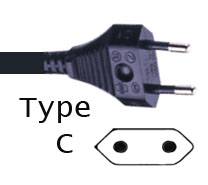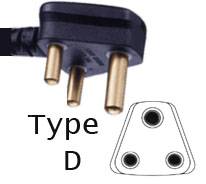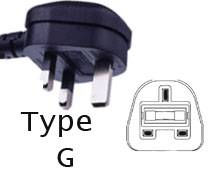Zambia, located in southern Africa, is a land of breathtaking natural beauty, diverse wildlife, and rich cultural heritage. From the iconic Victoria Falls, one of the Seven Natural Wonders of the World, to the vast plains of the South Luangwa National Park and the mighty Zambezi River, Zambia offers travelers an unforgettable journey filled with adventure, wildlife encounters, and stunning landscapes.
Ultimate Zambia Travel Guide
Destinations
Best time to go
The best time to visit Zambia depends on your interests and planned activities. The dry season, from May to October, is ideal for wildlife viewing, as animals gather around water sources, making them easier to spot. This period also offers excellent conditions for visiting Victoria Falls, with lower water levels allowing for clearer views and thrilling activities such as white-water rafting. However, if you’re interested in birdwatching or exploring lush landscapes, the wet season, from November to April, brings vibrant vegetation and increased birdlife.
Average Temperature By Month
January: 22°C (72°F)
February: 22°C (72°F)
March: 22°C (72°F)
April: 21°C (70°F)
May: 19°C (66°F)
June: 17°C (63°F)
July: 17°C (63°F)
August: 18°C (64°F)
September: 21°C (70°F)
October: 22°C (72°F)
November: 22°C (72°F)
December: 22°C (72°F)
What To Expect
Time Zone:
Zambia operates on Central Africa Time (CAT), which is 2 hours ahead of Coordinated Universal Time (UTC+2).
Currency:
The official currency of Zambia is the Zambian Kwacha (ZMW). Currency exchange services are available at banks, exchange bureaus, and hotels. Credit cards are accepted in major cities and tourist establishments, but it's advisable to carry cash for transactions in more rural areas.
Language:
The official language of Zambia is English, which is widely spoken and understood, especially in urban areas and among the educated population. However, Zambia is home to over 70 indigenous languages, with Bemba, Nyanja, and Tonga being the most widely spoken among them.
Airport:
The main international airport serving Zambia is Kenneth Kaunda International Airport (LUN), located near the capital city of Lusaka. It offers connections to various domestic and international destinations.
How To Get Around
Domestic Flights: Domestic flights are available for traveling between major cities and popular tourist destinations. Airlines such as Proflight Zambia and Mahogany Air operate regular flights, providing a quick and convenient mode of transportation.
Bus: Buses are a common mode of transportation for traveling between cities and towns in Zambia. Several bus companies operate services on various routes, offering affordable and reliable transportation options.
Car Rental: Renting a car is a popular option for travelers who prefer flexibility and independence. Several international and local car rental companies operate in major cities and at the airport, offering a range of vehicles to suit different budgets and preferences.
Taxi: Taxis are readily available in urban areas and can be hailed from the street or hired from taxi stands. It’s advisable to negotiate the fare before starting your journey, as taxis in Zambia may not always use meters.
Average Temperature By Month:
January: 22°C (72°F)
February: 22°C (72°F)
March: 22°C (72°F)
April: 21°C (70°F)
May: 19°C (66°F)
June: 17°C (63°F)
July: 17°C (63°F)
August: 18°C (64°F)
September: 21°C (70°F)
October: 22°C (72°F)
November: 22°C (72°F)
December: 22°C (72°F)
Plugs:
The standard voltage in Zambia is 230 volts AC, 50Hz. The most commonly used plug types are Type C (European) and Type D (Indian). It's advisable to bring a universal adapter if your devices have different plug types.
VPN:
Access to certain websites and online services may be restricted in Zambia. Consider using a virtual private network (VPN) to securely access the internet and bypass any censorship restrictions.
Safety:
Zambia is generally a safe destination for tourists, but it's essential to take normal precautions to ensure your safety and security. Be mindful of your belongings, especially in crowded areas, and avoid walking alone at night in unfamiliar areas. Additionally, follow local advice and guidelines, particularly when visiting wildlife reserves and national parks. By staying informed and exercising common sense, you can enjoy a safe and rewarding journey through Zambia's diverse landscapes and vibrant culture.
Credit Cards and Banks
Credit Cards:
Credit card acceptance in Zambia is limited primarily to major hotels, upscale restaurants, and larger shops in urban areas like Lusaka, Livingstone, and Ndola. Visa and MasterCard are the most commonly accepted, but even they may not be accepted everywhere. It’s advisable to carry enough cash, especially when traveling to rural areas or smaller towns where card acceptance is rare.
ATMs:
ATMs can be found in major cities and tourist areas throughout Zambia, allowing you to withdraw Zambian Kwacha (ZMW). Lusaka, Livingstone, and Ndola have a good number of ATMs, but they may be scarce in more remote regions. It’s recommended to withdraw enough cash when you have access to ATMs.
Currency Exchange:
The currency of Zambia is the Zambian Kwacha (ZMW). You can exchange major foreign currencies at banks, currency exchange bureaus, and some hotels. US dollars, euros, and British pounds are typically the most widely accepted foreign currencies for exchange.
Banks:
Major banks in Zambia include:
- Bank of Zambia: The central bank of Zambia, responsible for monetary policy and regulating the country’s financial institutions.
- Zambia National Commercial Bank (Zanaco): One of the largest banks in Zambia, Zanaco offers a wide range of banking services including savings accounts, loans, and foreign exchange.
- Standard Chartered Bank Zambia: Operating as part of the international Standard Chartered group, Standard Chartered Bank Zambia provides various banking products and services for individuals and businesses.
Traveler’s Checks:
Traveler’s checks are becoming less common, and their usage is limited in Zambia. It’s recommended to carry cash or use credit/debit cards for transactions.
Tips for Banking in Zambia:
- Notify your bank before traveling to Zambia to avoid any issues with card usage abroad.
- Keep your PIN and card information secure, and be cautious when using ATMs, especially in secluded areas.
- Carry small denominations of Zambian Kwacha for smaller purchases, as change may be limited.
- Familiarize yourself with the current exchange rate to ensure fair transactions when exchanging currency.
By understanding the banking system in Zambia, you can ensure a smooth and hassle-free financial experience during your travels in the country.
Locations
Zambia
TRAVEL FACTS
US State Dept Travel Advisory
The US Department of State currently recommends US citizens exercise normal precautions in Zambia. Consult its website via the link below for updates to travel advisories and statements on safety, security, local laws, and special circumstances in this country.
https://travel.state.gov/content/travel/en/traveladvisories/traveladvisories.html
Passport/Visa Requirements
For the latest passport and visa requirements for this country, please consult the U.S. State Department’s “Learn About Your Destination” search tool, available through the link below.
US Embassy/Consulate
EMER: +(260) (0) 211-357-000; US Embassy Lusaka, Eastern end of Kabulonga Road, Ibex Hill Road, Lusaka, Zambia; ACSLusaka@state.gov; https://zm.usembassy.gov/
LGBTQIA+ Travelers
Telephone Code
260
Local Emergency Phone
999
Vaccinations
The CDC and WHO recommend the following vaccinations for Zambia: hepatitis A, hepatitis B, typhoid, yellow fever, rabies, meningitis, polio, measles, mumps and rubella (MMR), Tdap (tetanus, diphtheria and pertussis), chickenpox, shingles, pneumonia and influenza.
Climate
Tropical; modified by altitude; rainy season (October to April)
Currency (Code)
Zambian kwacha (ZMK)
Electricity/Voltage/Plug Type(s)
230 V / 50 Hz / plug types(s): C, D, G



Major Languages
Bemba, Nyanja, Tonga, Lozi, Chewa, Nsenga, Tumbuka, Lunda, Kaonde, Lala, Lamba, English
Major Religions
Protestant 75.3%, Roman Catholic 20.2%, other 2.7% (includes Muslim Buddhist, Hindu, and Baha’i)
Time Difference
UTC+2 (7 hours ahead of Washington, DC, during Standard Time)
Potable Water
Opt for bottled water
International Driving Permit
Suggested
Road Driving Side
Left
Tourist Destinations
Victoria Falls; Devil’s Pool; Zambezi River; Kafue National Park; Lusaka National Museum; Siavonga; Blue Lagoon National Park
Major Sports
Soccer, boxing, tennis
Cultural Practices
Always greet before starting a conversation, and if a person approaches you, offer the initial greeting. Men should withhold their hands when greeting a woman, until the woman offers her hands. Gifts are presented as a sign of honor, friendship or appreciation.
Tipping Guidelines
Tip 10% in restaurants. Tip guides directly at the end of a tour $5-10 (USD) per person per day.
Souvenirs
Wood and stone carvings, handmade pottery and glassware, basketware, batik fabric and decorative items; wrought iron sculptures and copperware; carved tribal items including masks, drums, and animals; beadwork and handmade jewelry; local gemstones
Traditional Cuisine
Nshima — a dough-like porridge made from ground maize used to scoop up side dishes (ndiwo) such as soups, stews, sauces, or relishes
Please visit the following links to find further information about your desired destination.
World Health Organization (WHO) – To learn what vaccines and health precautions to take while visiting your destination.
US State Dept Travel Information – Overall information about foreign travel for US citizens.
To obtain an international driving permit (IDP). Only two organizations in the US issue IDPs:
American Automobile Association (AAA) and American Automobile Touring Alliance (AATA)
How to get help in an emergency?
Contact the nearest US embassy or consulate, or call one of these numbers:
from the US or Canada – 1-888-407-4747 or from Overseas – +1 202-501-4444
Central Intelligence Agency.
The World Factbook.
/the-world-factbook
(May 8, 2024)



